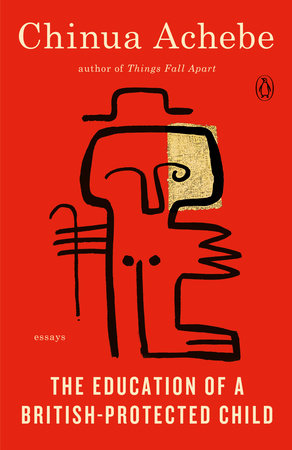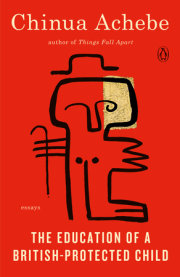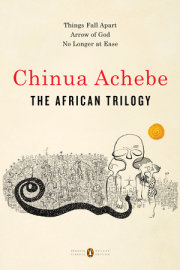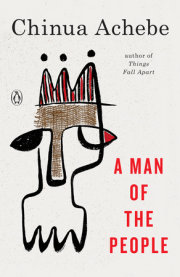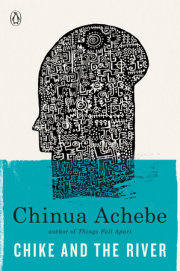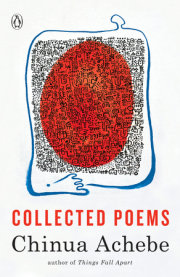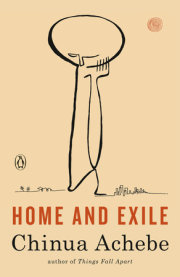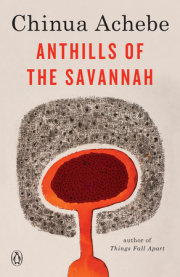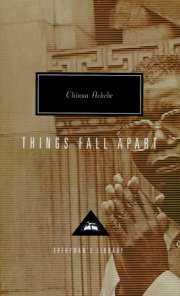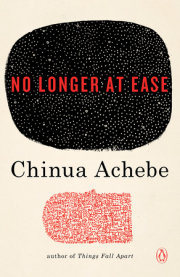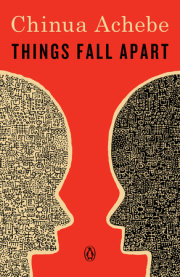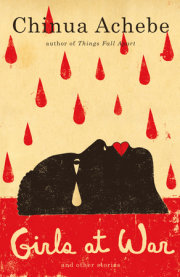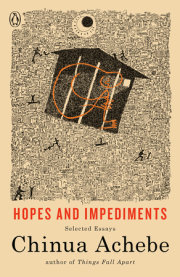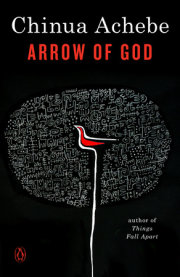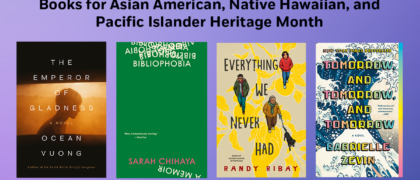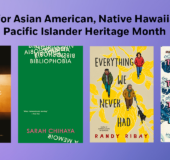MY DAUGHTERS
All my life I have had to take account of the millionbdifferences—some little, others quite big—between the Nigerian culture into which I was born, and the domineering Westernbstyle that infiltrated and then invaded it. Nowhere is the difference more stark and startling than in the ability to ask a parent: “How many children do you have?” The right answer should be a rebuke: “Children are not livestock!” Or better still, silence, and carry on as if the question was never asked.
But things are changing and changing fast with us, and we have been making concession after concession even when the other party shows little sign of reciprocating. And so I have learned to answer questions that my father would not have touched with a bargepole. And to my shame let me add that I suspect I may even be enjoying it, to a certain extent!
My wife and I have four children—two daughters and two sons, a lovely balance further enhanced by the symmetry of their arrivals: girl, boy, boy, girl. Thus the girls had taken strategic positions in the family.
We, my wife and I, cut our teeth on parenthood with the first girl, Chinelo. Naturally, we made many blunders. But Chinelo was up to it. She taught us. At age four or thereabouts, she began to reflect back to us her experience of her world. One day she put it in words: “I am not black; I am brown.” We sat up and began to pay attention.
The first place our minds went was her nursery school, run by a bunch of white expatriate women. But inquiries to the school board returned only assurances. I continued sniffing around, which led me in the end to those expensive and colorful children’s books imported from Europe and displayed so seductively in the better supermarkets of Lagos.
Many parents like me, who never read children’s books in their own childhood, saw a chance to give to their children the blessings of modern civilization which they never had and grabbed it. But what I saw in many of the books was not civilization but condescension and even offensiveness.
Here, retold in my own words, is a mean story hiding behind the glamorous covers of a children’s book:
A white boy is playing with his kite in a beautiful open space on a clear summer’s day. In the background are lovely houses and gardens and tree-lined avenues. The wind is good and the little boy’s kite rises higher and higher and higher. It flies so high in the end that it gets caught under the tail of an airplane that just happens to be passing overhead at that very moment. Trailing the kite, the airplane flies on past cities and oceans and deserts. Finally it is flying over forests and jungles. We see wild animals in the forests and we see little round huts in the clearing. An African village.
For some reason, the kite untangles itself at this point and begins to fall while the airplane goes on its way. The kite falls and falls and finally comes to rest on top of a coconut tree.
A little black boy climbing the tree to pick a coconut beholds this strange and terrifying object sitting on top of the tree. He utters a piercing cry and literally falls off the tree.
His parents and their neighbors rush to the scene and discuss this apparition with great fear and trembling. In the end they send for the village witch doctor, who appears in his feathers with an entourage of drummers. He offers sacrifices and prayers and then sends his boldest man up the tree to bring down the object, which he does with appropriate reverence. The witch doctor then leads the village in a procession from the coconut tree to the village shrine, where the supernatural object is deposited and where it is worshipped to this day.
That was the most dramatic of the many imported, beautifully packaged, but demeaning readings available to our children, perhaps given them as birthday presents by their parents.
So it was that when my friend the poet Christopher Okigbo, representing Cambridge University Press in Nigeria at that time, called on me and said I must write him a children’s book for his company, I had no difficulty seeing the need and the urgency. So I wrote
Chike and the River and dedicated it to Chinelo and to all my nephews and nieces.
(I am making everything sound so simple. Children may be little, but writing a children’s book is not simple. I remember that my first draft was too short for the Cambridge format, and the editor directed me to look at Cyprian Ekwensi’s
Passport of Mallam Illia for the length required. I did.)
With Chinelo, I learned that parents must not assume that all they had to do for books was to find the smartest department store and pick up the most attractive-looking book in stock. Our complacency was well and truly rebuked by the poison we now saw wrapped and taken home to our little girl. I learned that if I wanted a safe book for my child I should at least read it through and at best write it myself.
Our second daughter, Nwando, gave us a variation on Chinelo’s theme eight years later. The year was 1972 and the place Amherst, Massachusetts, where I had retreated with my family after the catastrophic Biafran civil war. I had been invited to teach at the university, and my wife had decided to complete her graduate studies. We enrolled our three older children in various Amherst schools and Nwando, who was two and a half, in a nursery school. And she thoroughly hated it. At first we thought it was a passing problem for a child who had never left home before. But it was more than that. Every morning as I dropped her off she would cry with such intensity I would keep hearing her in my head all three miles back. And in the afternoon, when I went back for her, she would seem so desolate. Apparently she would have said not a single word to anybody all day.
As I had the task of driving her to this school every morning, I began to dread mornings as much as she did. But in the end we struck a bargain that solved the problem. I had to tell her a story all the way to school if she promised not to cry when I dropped her off. Very soon she added another story all the way back. The agreement, needless to say, taxed my repertory of known and fudged stories to the utmost. But it worked. Nwando was no longer crying. By the year’s end she had become such a success in her school that many of her little American schoolmates had begun to call their school
Nwando-haven instead of its proper name, Wonderhaven.
2009
Copyright © 2009 by Chinua Achebe. All rights reserved. No part of this excerpt may be reproduced or reprinted without permission in writing from the publisher.

